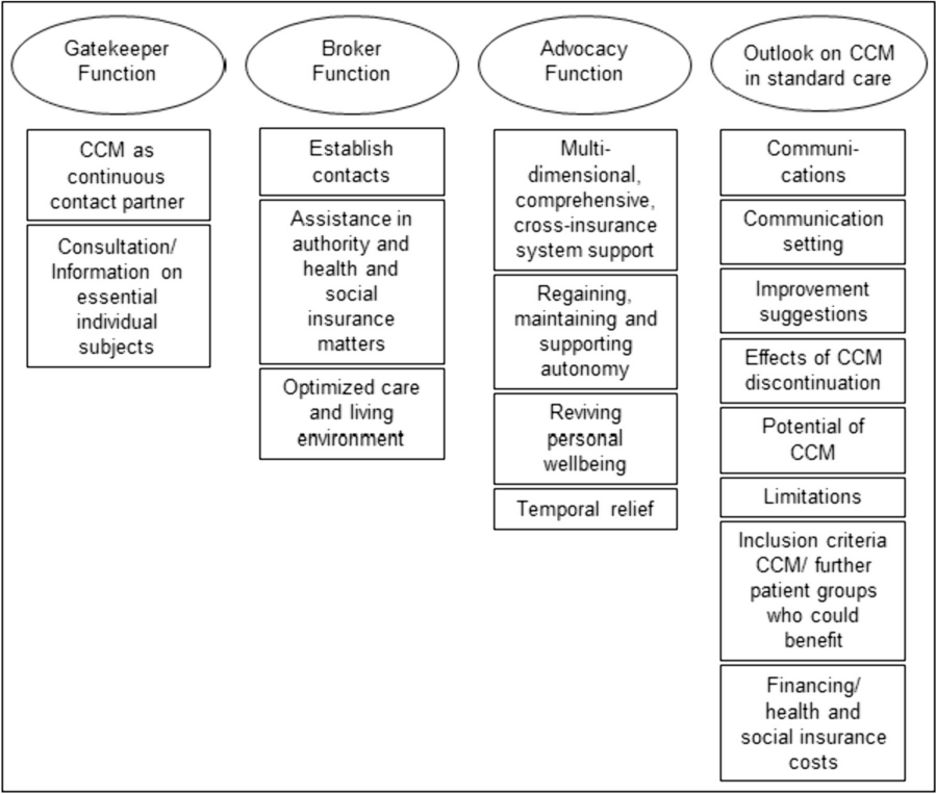1. Title of the Research Paper:
So at least now I know how to deal with things myself, what I can do if it gets really bad again”—experiences with a long‑term cross‑sectoral advocacy care and case management for severe multiple sclerosis: a qualitative study.
2. Authors & Affiliations:
Anne Müller1* , Fabian Hebben1 , Kim Dillen1, Veronika Dunkl1, Yasemin Goereci2, Raymond Voltz1,3,4, Peter Löcherbach5, Clemens Warnke2 , Heidrun Golla1 and on behalf of the COCOS-MS trial group represented by Martin Hellmich 1Department of Palliative Medicine, Faculty of Medicine and University Hospital,
University of Cologne, Cologne, Germany 2Department of Neurology, Faculty of Medicine and University Hospital,
University of Cologne, Cologne, Germany 3Center for Integrated Oncology Aachen Bonn Cologne Düsseldorf (CIOABCD), University of Cologne, Cologne, Germany 4Center for Health Services Research (ZVFK), University of Cologne, Cologne, Germany 5German Society of Care and Case Management e.V. (DGCC), Münster, Germany.
3. Abstract/Summary:
Background: Persons with severe Multiple Sclerosis (PwsMS) face complex needs and daily limitations that make it challenging to receive optimal care. The implementation and coordination of health care, social services, and support in financial affairs can be particularly time consuming and burdensome for both PwsMS and caregivers. Care and case management (CCM) helps ensure optimal individual care as well as care at a higher-level. The goal of the current qualitative study was to determine the experiences of PwsMS, caregivers and health care specialists (HCSs) with the CCM.
Methods: In the current qualitative sub study, as part of a larger trial, in-depth semi-structured interviews with PwsMS, caregivers and HCSs who had been in contact with the CCM were conducted between 02/2022 and 01/2023. Data was transcribed, pseudonymized, tested for saturation and analyzed using structuring content analysis according to Kuckartz. Sociodemographic and interview characteristics were analyzed descriptively.
Results: Thirteen PwsMS, 12 caregivers and 10 HCSs completed interviews. Main categories of CCM functions were derived deductively: (1) gatekeeper function, (2) broker function, (3) advocacy function, (4) outlook on CCM in standard care. Subcategories were then derived inductively from the interview material. 852 segments were coded. Participants appreciated the CCM as a continuous and objective contact person, a person of trust (92 codes), a competent source of information and advice (on MS) (68 codes) and comprehensive cross-insurance support (128 codes), relieving and supporting PwsMS, their caregivers and HCSs (67 codes).
Conclusions: Through the cross-sectoral continuous support in health-related, social, financial and everyday bureaucratic matters, the CCM provides comprehensive and overriding support and relief for PwsMS, caregivers and HCSs. This intervention bears the potential to be fine-tuned and applied to similar complex patient groups.
4. Publication Details:
BMC Health Services Research, "So at least now I know", published online 10-Apr-24
6. Key Findings & Implications
At current, there is no support system for PwsMS, their caregivers and HCSs that addresses their complex and unmet needs comprehensively and continuously. There are rare qualitative insights of the three important stakeholders: PwsMS, caregivers and HCSs in one analysis about a supporting service like a CCM. In response to this gap, we developed and implemented a long-term cross-sectoral advocacy CCM and analyzed it qualitatively. PwsMS, their caregivers and HCSs expressed positive experiences, perceiving the CCM as a source of relief and support that improved care across various aspects of life. For patients, the CCM intervention resulted in enhanced autonomy, reviving of personal wellbeing and new established contacts with HCSs. Caregivers reported a reduced organizational burden and felt better informed, and HCSs experienced primarily temporal relief, allowing them to concentrate on their core professional responsibilities. At a higher level of care, the study suggests that the CCM contributed to a reduction in disintegration within the social and health care system. The feedback from participants is seen as valuable for adapting the CCM intervention and the CCM manual for follow-up studies, involving further complex patient groups such as neurological long-term diseases apart from MS and tailoring the duration of the intervention depending on the complexity of evolving demands.

8. Citation Information
Müller, A., Hebben, F., Dillen, K. et al. “So at least now I know how to deal with things myself, what I can do if it gets really bad again”—experiences with a long-term cross-sectoral advocacy care and case management for severe multiple sclerosis: a qualitative study. BMC Health Serv Res 24, 453 (2024). "We need time"
9. Keywords/Tags:
R., Schütze, D., ... & Kuss, K. (2021). How can we ensure the success of specialised palliative home-care? A qualitative study (ELSAH) identifying key issues from the perspective of patients, relatives and health professionals. Palliative medicine, 35(10), 1844-1855.Michel, C., Seipp, H., Kuss, K.,
Hach, M., Kussin, A., Riera-Knorrenschild, J., & Bösner, S. (2023). Key aspects of psychosocial needs in palliative care-a qualitative analysis within the setting of a palliative care unit in comparison with specialised palliative home care. BMC palliative care, 22(1), 100.
Dillen, K., Joshi, M., Krumm, N., Hesse, M., Brunsch, H., Schmidt, H., ... & Voltz, R. (2021). Availability as key determinant in the palliative home care setting from the patients’ and family caregivers’ perspectives: A quantitative-qualitative-content analysis approach. Palliative & supportive care, 19(5), 570-579.
Danielsen, B. V., Sand, A. M., Rosland, J. H., & Førland, O. (2018). Experiences and challenges of home care nurses and general practitioners in home-based palliative care–a qualitative study. BMC palliative care, 17, 1-13.